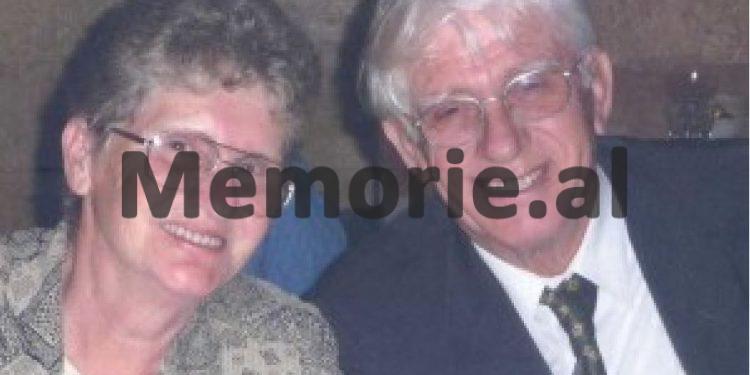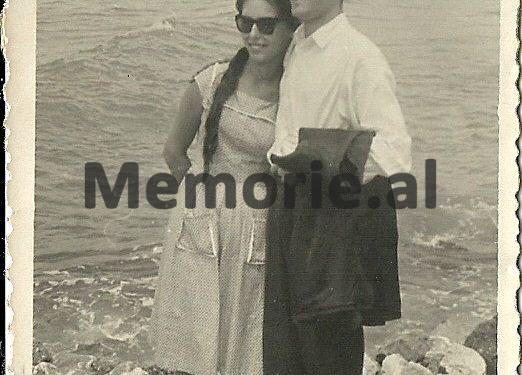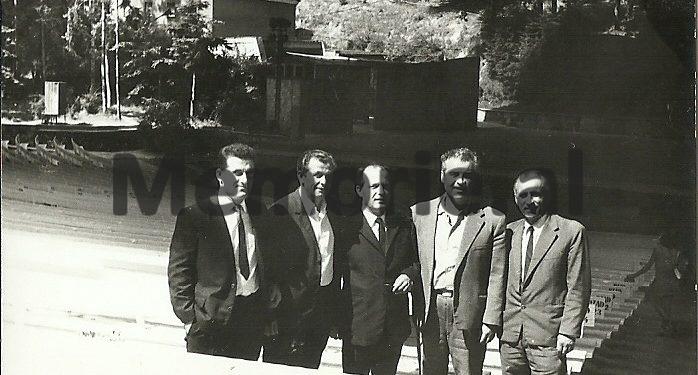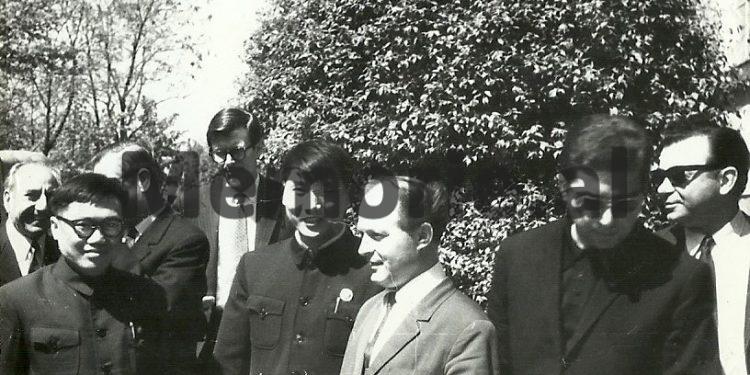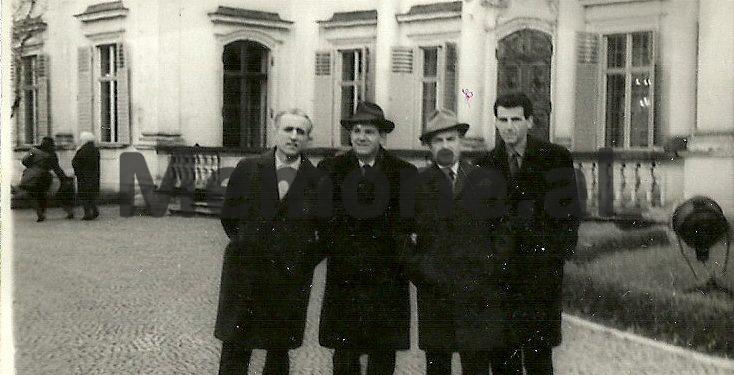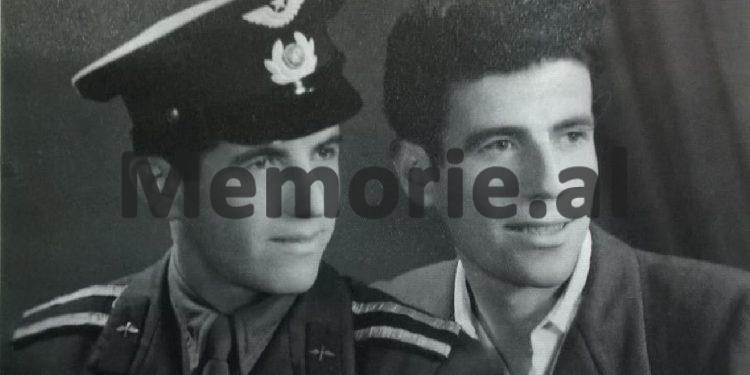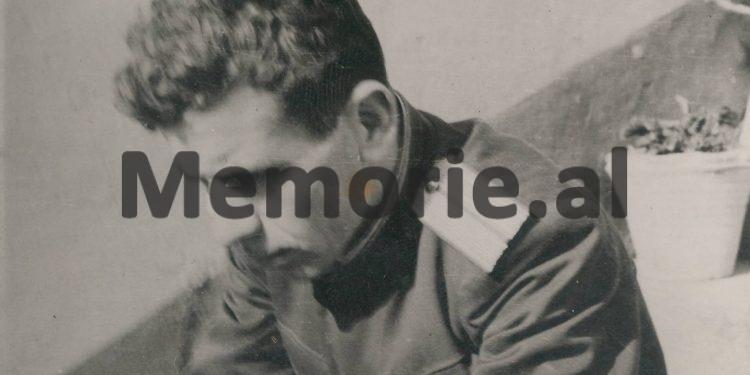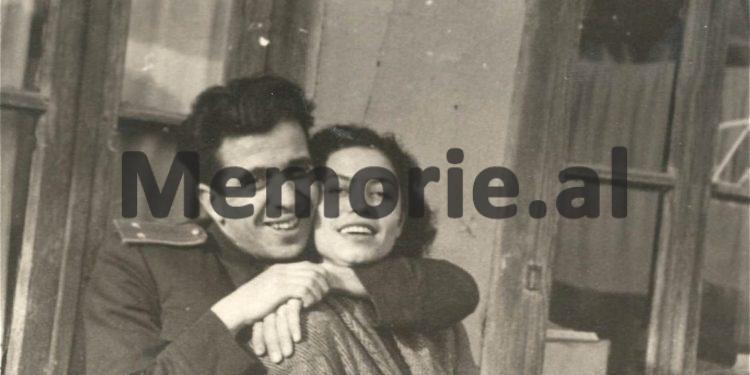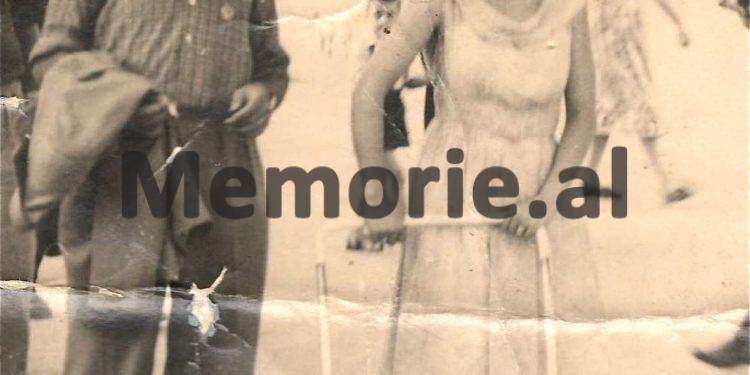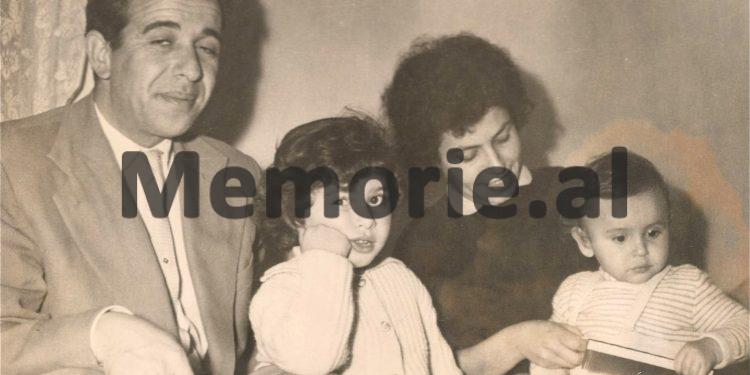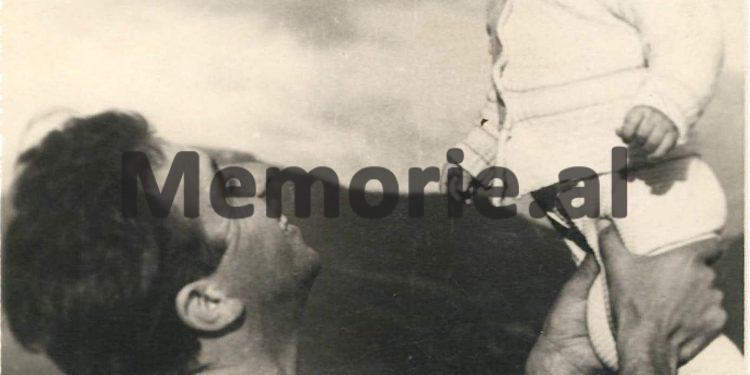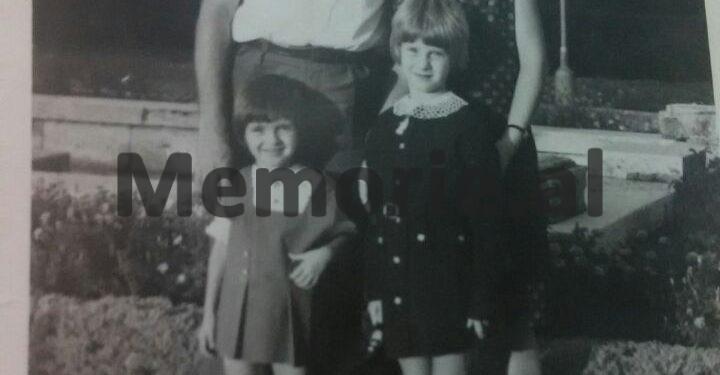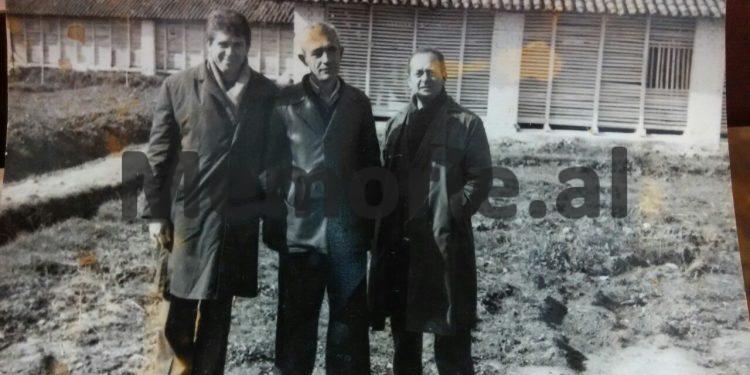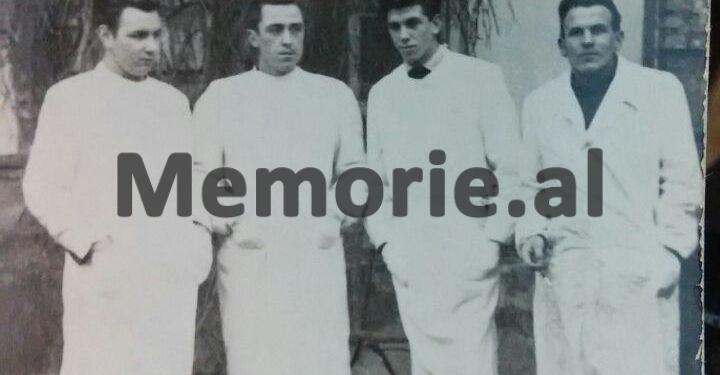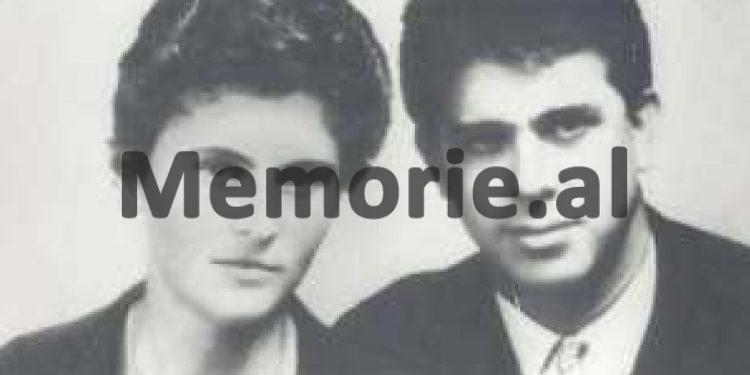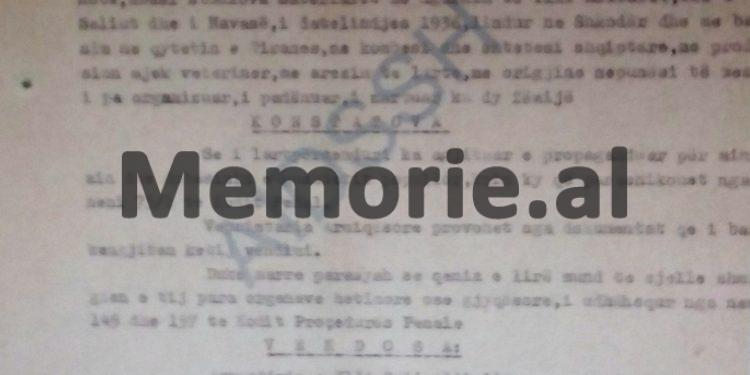Dashnor Kaloçi
Memorie.al publishes the unknown story of a group of intellectuals from different fields and professions, who had studied in Poland, in the late ’50s returned to their homeland and were appointed to high positions in some of the sectors of the economy. Albanian. How they were arrested by the State Security in early February 1973, after being surveyed, prosecuted and intercepted for years since returning from their studies, accused of being the “Polish Agent Group”, which consisted of of the 10 former Albanian students who came from families very closely associated with the communist government of that time. After, one of the leaders of the group that was the Director of the Food Factory “Ali Kelmendi” in Tirana, had a martyr father, brother “Hero of the People”, and brother-in-law President, lost his life in very mysterious circumstances while serving his sentence in Ballsh prison …?!
In early February 1973, word spread throughout the city of Tirana that a “very large, very dangerous hostile group” had been arrested, who had long been pursued and monitored by the State Security, and had taken part in their arrest. the top leaders of the Directorate of Internal Affairs of Tirana. What impressed at the time about the arrest of this group, was the fact that: the 12 arrested were not from families considered “reactionary” and suckers of “inverted classes”, as happened not infrequently, but quite the opposite?! After all, they all came from families closely associated with the government, who had studied abroad and held responsible management positions according to the branches where they graduated. For example. the Alibali family in Tirana and Durrës, with four military brothers, the Nurja family in Shkodra with 9 brothers, where 7 of them were party members and two military, etc., up to Vedat Buzi, who had a martyred father, the People’s Hero brother and brother-in-law, Kristaq Ngjela, President of the Court in Tropoja! But who were the other members of this group, what activity had they had, what were the charges against them and how much were they convicted? Regarding this and others, we have interviewed some of the members of this “group” who with their testimonies shed light and illuminate almost all the behind the scenes that were played at their expense at that time as well as the real reason for the arrest and their sentence, which we are publishing in several articles exclusively for memorie.al, starting with Mr. Ylli Alibali, one of the main members of the so-called “Group of Polish agents”
Mr. Alibali, during what period did you study in Poland and how did your study abroad become possible?
It was 1956 and you can say that the “lottery” fell to me because there were many graduates all over Albania. To be honest it was not only the “lottery”, but also the desire of those who ruled and governed us at the time. I was told to go to Poland, my name came up, but Poland was not a place heard for Albanians, because we were greedy for the glorious Soviet Union and it did not suit me very well because it was better to go to Russia than to Poland.
But you did not refuse the right to study and went to Poland…
It was not even a question, because these were just conjectures. When we left, we left by boat from Durrës, dropped them off from the Black Sea, in Constanta, and then, by train, all these students were distributed in certain countries. When we went to Poland, there we found a noble people, suffering, it was still more than half of Warsaw destroyed and people were living in ruins. Yes, they are a working people and they did it, today Warsaw is one of the most beautiful cities in Europe.
How many students were you in total when you went and under what conditions were you accommodated?
We went about 40 students and found about 20 people there, i.e. 60 of us could be in different faculties. We lived in student dormitories and the conditions were relatively very good compared to our conditions. But even the reception was very warm. They are a very hospitable people and they eat with the hospitality of Albanians.
Before you left, did they give you any orders for there?
Even though we were chosen, as we all came from War families and with traditions, and understood things because we were grown boys after hardships, they gave us many messages, telling us: be careful not to provoke, do not do, dm th. some things we did not encounter there as they were very friendly people and willing to help with anything.
All that group of students, did you know each other?
We did not know each other before, as we came from different schools and different cities, but the Albanian becomes friends immediately after we were all of the same level.
What was your first impression of the Polish people when you went there?
The first impression we made was that they were an anti-conformist people. Because Poland is by nature a very demanding people, when how you like a thing, it does not praise you. Because they also had those plans for the Agricultural Cooperatives, because they were close to that “Great Mother”, the Soviet Union, but they did not want collectivization, so there were reactions. But the farms were very organized and better, as they had agricultural mechanics and so on.
What was the political situation when you went to Poland?
When we went, the VIII Plenum was held and Gomulka from a man who was in prison, became the first secretary of the Polish Communist Party. For us, the Polish Communist Party was the Democratic Party, as it had all its issues open to the people. We had a meeting once a week at our embassy in Warsaw and we heard and talked about some talk and opinion. But we knew more about the Albania-Poland divergences than those of the embassy.
Why did you know more…?!
Because we read the newspapers and knew where their frictions were. The more we learned that, Kazhimierzh Mijal, had come to Albania, but the reasons for his arrival in Albania we students did not ask questions to the Polish authorities.
Were you afraid?
Not that we were afraid, but because they did not even care about that job at all. In my opinion, convinced of these things, the Polish Secret Service in Albania has not been active. Our regime was primitive and the Polish regime wanted to fix the primitive heads of our leaders, but no, they could not be fixed.
Going back to the Albanian students in Poland, what relations did you have there with each other, so did you have harmony and who did you personally have the most company with?
We got along extremely well with each other, about 60 people while we were there. Vedat Buzi and I had a lot of friendships because he was in a school with us, it was the Agricultural School, but he also had Food Engineering and Vedat was there, a technologist for different wines and drinks, but we met often, because we Albanians longed for a man -the other. And overall, they were very good guys. I have known Vedat as a man who has rare friends who are very pure and sincere. He was not ambitious and blushed when we objected to any of his ideas. Then we were very influenced by the environment that was, as you call it, Poland has a very high level of citizenship. There is talk of “You sir”.
During your time in Poland with Vedat, did you have any suspicion that you were being followed and monitored?
Vedat and I at that time had no doubt that we were being monitored, at all. But I have now also received those Security documents from the Files Authority and it turns out that they have been surveillance and rumbled from behind wherever we have gone. But I still say that we went very well and we did not have any contradictions there with any other Albanian. We were boys who also represented the nation with dignity.
But when he returned to Albania, how was the situation?
When we returned to Albania, the demands were great for people with qualifications as we had not only the culture, but also the very strong practices. So, we according to professions, everyone went to his place. We had a lot of engineers for agricultural mechanics, for railways, for construction, while I was for Veterinary.
Where were you appointed when you returned to Albania?
When we returned to Albania, I was appointed to the district of Kruja, and I worked there for almost 10 years. We slept in families sometimes because when they needed they called us often and the veterinarian is very dear to the villager. The private economy at the time was good, but when collectivizations took place the situation worsened. Then I worked on the Thumana farm
But when you came back here did you continue your friendship with former Polish fellow students?
Here, too, we often met each other, as we had learned there in Poland, where once a week, once every two weeks, we would gather at the Albanian embassy there. And here, when we came again we met often. And we had the usual conversations and discussions. But these discussions turned out to be extraordinary.
Why…?
Because everyone works with science, but also the State Security, more precisely the Internal Directorate, so it also worked with science, who speaks and who does not speak. But we were free people. But we had no claims to power, as we had claims to ourselves, as only I from my family had 3 effective officers: Xhevati, Agimi, and Besniku.
So even after you returned to Albania, you continued to preserve that society and discuss the difference that existed between the two countries…?
Yes definitely, it was the main topic of our conversations and we talked casually with each other, as friend remains friend. We came here and met and drank some beer and coffee as much as we could. My destiny was there in Poland, where we saw a lot and practiced in food factories and had an experience …
But when you came here what reality did you face professionally?
This is where the Meat Factory started to be built, it was a very modern factory and the project was Austrian if I am not mistaken. Also, the combine was not working at all, the sausage came out white and was not bought. But those of the leadership and the government said: how can we do it now, since the foreign specialists fled and the people needed the sausage, because it was not bought and the whole scrap came out?! Then which of the engineers has been out, in the combine, it was said. And when we first came, we were doing internships at the food lab, but there we noticed that things were not going well professionally and we started making a lot of remarks. But a few times the director came to us and told us not to deal too much with remarks.
So, you seem to have given the mouth a lot…?
Definitely, this was a reality and that is why the director warned us. There we apparently got into the “circle”, but we were into the “circle” in a way, that when we came from Poland they seemed to look at us differently from those who had studied in other countries.
Why did this happen?
But why Poland was a place not very desirable for the communist regime in Tirana, because there were many changes then, Gomulka came and the old generation of Stalinists left and some reforms were made regarding democracy. And these other places were quieter. So, Poland had a bad reputation, as Gomulka had come out to oppose Khrushchev and these were the clashes between the parties. Now, since our leadership had some contradictions and were slightly broken, as far as we could understand with the Polish leadership, we were treated worse than the comrades who were in other democracies.
What about when you got back here…?
When we came back here, they were looking at us, I am talking about the State Security, as if we had gone there to get their money to overthrow the popular power here. In fact, we were dealing with science, as our jobs were science jobs, but those friends of the Directorate of Internal Affairs of Tirana, had made those relations that were unfavorable for us. They followed us, but we did not understand because they were all our people, I was at home with three officers, Vedat Buzi was the brother of the “People’s Hero” Hyqmet Buzi who was killed, and for the day of the martyrs and the first visit went to Vedat’s mother, as his father was also a Martyr of the Fatherland.
You did not understand that you were being followed and monitored by the State Security?
Absolutely nothing. I slept peacefully and went with services without any kind of problem. I did not feel at all that I would be arrested and the persecution was history in itself.
How do you remember the day of your arrest?
On February 1, 1973, they come and tell me: in the name of the people you are arrested! They come to my office, because that job is like that of a doctor, since when he enters the ambulance he wears a white apron so that others can recognize him. So even this job, the Security come to where I worked and enter like that with authority. They put bars on us as if we had done something big hard.
Who was one of those Security officers who arrested you?
It was the Director of the Directorate of Tirana, Kadri Gojashi. I did not even know that I had never dealt with them, but I saw the arrest warrant with the name of the person who had signed my arrest.
And where did they take you…?
9 months in cement with two thin blankets making us the investigator.
What were you asked there in the investigator?
To the investigator the question was: “Talk about your hostile activity”! But where was our hostile activity, when we from morning to night fought for plans that had professional duty and state duty. Now all our jobs were multiplied by zero, because according to the accusations made against us, we had carried out hostile activities working to overthrow the popular power. This was the “formula” that was communicated to us.
How many people in your group were arrested?
We arrested 10 people. Vedat Buzi, Director of the “Ali Kelmendi” Food Factory, who had great success, was arrested together with me. Then there was Sofokli Lulo, land engineer, Spiro Nikolla from Vlora, chief engineer of the Trade Park in Tirana, Burhan and Shuaip Nurja, two brothers from Shkodra, Faik Gojani We in the group were 12 people.
How were you treated during the investigation, was physical violence used against you?
The treatment of the investigator was not bad, as they saw that we were not the ones to be tortured, but it was inhuman treatment in the dungeons. Arrested in February and sleeping with two blankets in cement, for a man who had lived well all his life, was not little! The investigators also found out how much it’s worth our skin to be there, as both the investigator and the others themselves were under pressure from someone else. It is true that they sometimes found it difficult to ask questions, as we were all Party members. Vedat Buzi was the brother of the People’s Hero, Hyqmet Buzi, and it was not normal to ask him questions about hostile activities against the popular power?!
When was the trial against you?
The trial took place after 10 months that we longed to leave the room to take us to the investigator. When we went to the investigator, it was great joy strongly, as we would be sitting like people in chairs. The trial was a military trial and 5 of those members of the court, were collaborators with my brother Xhevat, were in a Directorate, the Politics. They were ashamed to look their friend in the eye, as they knew who he was. Now though this “Group of Poles” who studied there should be given fame. Poland, in addition to Xhevat, introduced another pilot, the brother of a very good family friend of ours in Shkodra, the Nurja family.
Who was most punished by your group?
Spiro Nikolla who was the most important took 24 years. Sofokli Lulo with 15 years, Vedat Buzi with 15 years, me with my brother, Xhevat with 10 years each and also Adem Nurja with Faik Gojani with 10 years each. The charge was; “Agitation and propaganda against popular power”, when we ourselves belonged to popular power?! How could the director of the Food Factory speak against himself?! How could I speak against my work, when I had an extremely great success?!
Did the trial become public or behind closed doors?
The trial became more closed and hermetic so that no one could hear, no one could hear a word.
Who were the witnesses?
None of the witnesses came out because they had nothing to say. We were supposedly given a 3-day trial, but from half an hour and we sat and chatted with each other. They were ashamed to look us in the eye.
While you were arrested and convicted, what happened to your family?
After my sentence, my family and I were mistreated, as my wife was in the Design Institute and after I was imprisoned, she was transferred to the Construction Company in Tirana, as a simple executor. The old age War pension was taken away from them.
Where were you sent to serve your sentence?
My brother who had been an officer, Xhevat, was taken to Spaç, and me and Vedat Buzi and some other friends were taken to Ballsh. We worked hard there, what else could we do?! Vedati died there!
How do you remember his death?
I remember very well how it happened now, as we were close friends and in Ballsh prison. We were watching a movie because once a week we were given to watch a movie when we parted with Vedat saying good night to each other. When in the morning, we are told that; Vedati vdiq. How did he die I told him?! At night, I was told, there had been intestinal confusion, but I do not know the exact diagnosis that was given to him. They took him and took him to the hospital, but apparently, he died on the way…?!
But how was his sentence and death commented at a time when he was the brother of the “People’s Hero”?
At that time, it was said as if under the ear that; Hysni Kapo did not absolutely agree that Vedat should be punished, because, as it were, Hysni had his family under his patronage, as Vedat’s brother was the People’s Hero. But this happened, because there were others on Hysni Kapon… /Memorie.al




